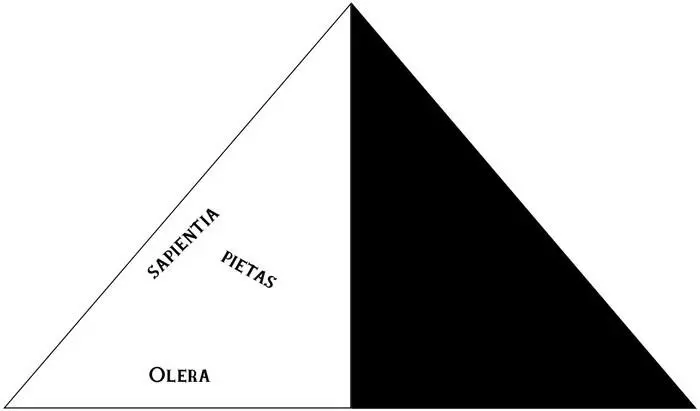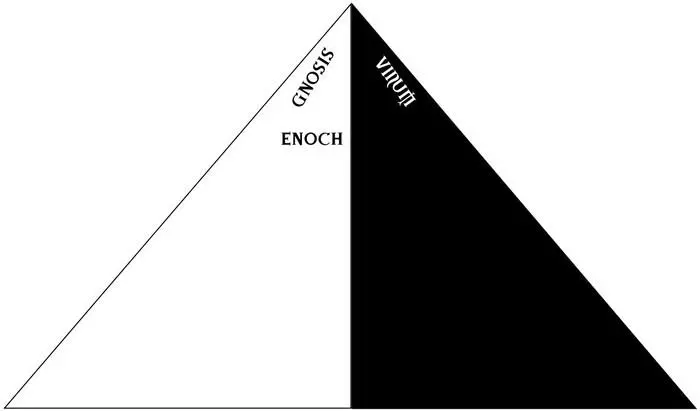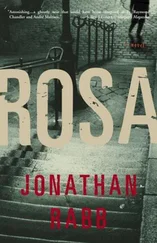Jonathan Rabb - The Book of Q
Здесь есть возможность читать онлайн «Jonathan Rabb - The Book of Q» весь текст электронной книги совершенно бесплатно (целиком полную версию без сокращений). В некоторых случаях можно слушать аудио, скачать через торрент в формате fb2 и присутствует краткое содержание. Жанр: Триллер, на английском языке. Описание произведения, (предисловие) а так же отзывы посетителей доступны на портале библиотеки ЛибКат.
- Название:The Book of Q
- Автор:
- Жанр:
- Год:неизвестен
- ISBN:нет данных
- Рейтинг книги:5 / 5. Голосов: 1
-
Избранное:Добавить в избранное
- Отзывы:
-
Ваша оценка:
- 100
- 1
- 2
- 3
- 4
- 5
The Book of Q: краткое содержание, описание и аннотация
Предлагаем к чтению аннотацию, описание, краткое содержание или предисловие (зависит от того, что написал сам автор книги «The Book of Q»). Если вы не нашли необходимую информацию о книге — напишите в комментариях, мы постараемся отыскать её.
The Book of Q — читать онлайн бесплатно полную книгу (весь текст) целиком
Ниже представлен текст книги, разбитый по страницам. Система сохранения места последней прочитанной страницы, позволяет с удобством читать онлайн бесплатно книгу «The Book of Q», без необходимости каждый раз заново искать на чём Вы остановились. Поставьте закладку, и сможете в любой момент перейти на страницу, на которой закончили чтение.
Интервал:
Закладка:
A troubling thought as the door opened and Petra slid in next to Ivo. He was already on her lap, back pressed into her chest, by the time she pulled it shut. A quick kiss, then back to the vinyl.
“Any problems?” Pearse asked.
“They had a car outside. I took the basement route. Don’t worry, they didn’t see me.” She handed him the book. “And it wasn’t just a box. It was like a little shrine.” The anger in her voice was all too plain. “Statues, pictures…. I have no idea what they were for.” She let her head fall back against the partition, her eyes staring out the window, totally unaware of the effect her tone was having on Ivo. “How could he have done that?”
With tears in his eyes, Ivo looked up at her. “I’m sorry, Mommy. Salko said it was okay.”
She looked at him, at once squeezing her arms around him. “Oh, no, sweetie. I’m not angry with you. I’m not angry with you at all.” She kissed the top of his head.
Ivo’s tears slowed. “Are you angry with Salko?”
“Don’t worry about Salko, sweet pea. That’s nothing for you to think about.”
“Don’t be angry with Salko, Mommy.”
“Okay.” Another few kisses. “I won’t.” After a moment, she looked across at Pearse. “So, is it what you thought it was?”
He continued to stare at the two of them.
“What’s in the book, Ian?” she pressed.
He held her gaze, then turned to the book. “Right. The book.”
Its dimensions were that of a small laptop, though far thinner. Across the top-in Serbo-Croatian-ran the title, Verses for Children , nothing to hint at the Manichaean scriptures within. Opening it, Pearse realized the book had recently been rebound, the sheets inside far older than the cover. The title reappeared on the front page, this time in grander script, a sure sign of nineteenth-century publishing. Confirmation came at the bottom of the page, where the year 1866 was inked in thick lettering. Between title and year-in a single column-ran a list of perhaps eight handwritten names, each from a different pen. It was the last few that caught his attention: Alibeg Mendravic, Vlado Mendravic, Salko Mendravic, Ivo Corkan.
A Manichaean lineage brought to life in the scrawled signatures of four six-year-old boys.
Pearse didn’t know whether to be more concerned with the deep-rooted familial devotion or with the book’s obvious professional quality. This wasn’t something that had been produced in a back room by a bunch of zealots, a hundred or so copies to be distributed by hand. This was something far more serious, clearly published on a much larger scale. And if that was the case with the Serbo-Croatian edition, who was to say how many primers had been produced in German or in English? A far more daunting prospect.
Obviously, the Manichaeans hadn’t spent the last seventeen hundred years simply waiting for the return of their Paraclete.
“I wrote my name,” said Ivo, his little finger reaching over to the page, tracing the lettering. “That’s Salko, and Salko’s dad, and his dad. It goes back a long way.” He looked at Pearse. “You have one with your dad, right?”
Pearse felt that now-familiar ache, his own failure for having allowed Ivo to become a part of this. Or was it merely jealousy, Salko’s bond with the boy made clear in the caress of a tiny hand?
“Right,” he answered distractedly, flipping to the next page as quickly as he could.
The table of contents stared back, a list of stories and prayers, each with its first line printed just below the title. Not surprisingly, the only one he recognized was the Ribadeneyra prayer, appropriately titled, “The Awakening.” The title Treasure of Life appeared next to it in parenthesis. He scanned the rest of the page. Each entry sported a parenthetical of its own, several of the titles appearing again and again: Pragmateia, Shahpuhrakan, Book of Giants, Living Gospel , and, most popular, Kephalaia . It didn’t take long to realize that these were the sources for the various verses. Texts thought lost for centuries alive within the pages of a child’s prayer book.
He flipped to “The Awakening.”
As with the “Perfect Light” scroll, tiny sketches of men with daggers and lions on the prowl littered the text. He was about to ask Ivo what they meant, when his eyes stopped on a drawing halfway down the page. At first, he thought it was simply one more triangle-half black, half empty-the ever-present symbol in Manichaean literature. Looking closer, he realized it was far more. Words filled both sides:

Those in the “light” represented the good-the prophets, fruit, wisdom, gnosis. Those in the “darkness,” evil-brothers in conflict, meat, sin, nothingness. A child’s guide to the two realms of the universe.
What Pearse saw, however, astounded him. Half of the words in the triangle coincided exactly with the phrases from the Ribadeneyra entries. It was only their location that puzzled him.
“Hand me my pack,” he said to Petra, his eyes still glued to the page. Ivo quickly leaned forward and picked up the pack; he wasn’t quite strong enough to lift it, Petra lending a hand as he brought it to Pearse’s lap. Staring a few moments longer at the page, Pearse then placed the open book on the dashboard and pulled the papers from inside the pack.
It took him less than five minutes to write out the answers he had deciphered from the one-line through the four-line entries, along with the unsolved five-line verse as Ribadeneyra had written it. He lettered the five separate sections A through E, each with its corresponding line entry. Staring down at the finished copy, he began to see where the Spaniard had been leading him all along.
1. Visegrad A-1 2. Near the awakening A-2 3. Rises A-3 4. When light and darkness meet A-4 5. So do I stretch out my two hands toward You A-5 6. Esau B-1 7. Near the sin of Jacob B-2 8. Becoming B-3 9. Noble bridge B-4 10. All to be formed in the orbit of light B-5 11. Wisdom and piety C-1 12. Over the herbs C-2 13. Opens C-3 14. The Inn C-4 15. When I am sent to the contest with darkness C-5 16. Gnosis strikes wine D-1 17. Floating above D-2 18. Enoch D-3 19. The hills make ascent D-4 20. Knowing that You can assist me in sight D-5 21. Treasure E-1 22. Revealed E-2 23. The enlightener speaks E-3 24. To his disciples E-4 25. The fragrance of life is always within me E-5
The first series was clear enough. “Visegrad, near the awakening, rises when light and darkness meet.” The light and darkness were meeting in the triangle; the triangle was near “The Awakening” in the prayer book; and Visegrad was “rising” from it. Ergo: The triangle somehow represented Visegrad.
Now to the geography of the town. Pearse noticed that the first two or three lines of each set pinpointed different areas in the triangle.
“Esau near the sin of Jacob”-Esau, Peccatum, Jacobus: lower right.

“Wisdom and piety over the herbs”-Sapientia, Pietas, Olera: middle and lower left.

And finally, “Gnosis strikes wine floating above Enoch”-Gnosis, Vinum, Enoch: upper left and right.

Three sides of the triangle.
Читать дальшеИнтервал:
Закладка:
Похожие книги на «The Book of Q»
Представляем Вашему вниманию похожие книги на «The Book of Q» списком для выбора. Мы отобрали схожую по названию и смыслу литературу в надежде предоставить читателям больше вариантов отыскать новые, интересные, ещё непрочитанные произведения.
Обсуждение, отзывы о книге «The Book of Q» и просто собственные мнения читателей. Оставьте ваши комментарии, напишите, что Вы думаете о произведении, его смысле или главных героях. Укажите что конкретно понравилось, а что нет, и почему Вы так считаете.










